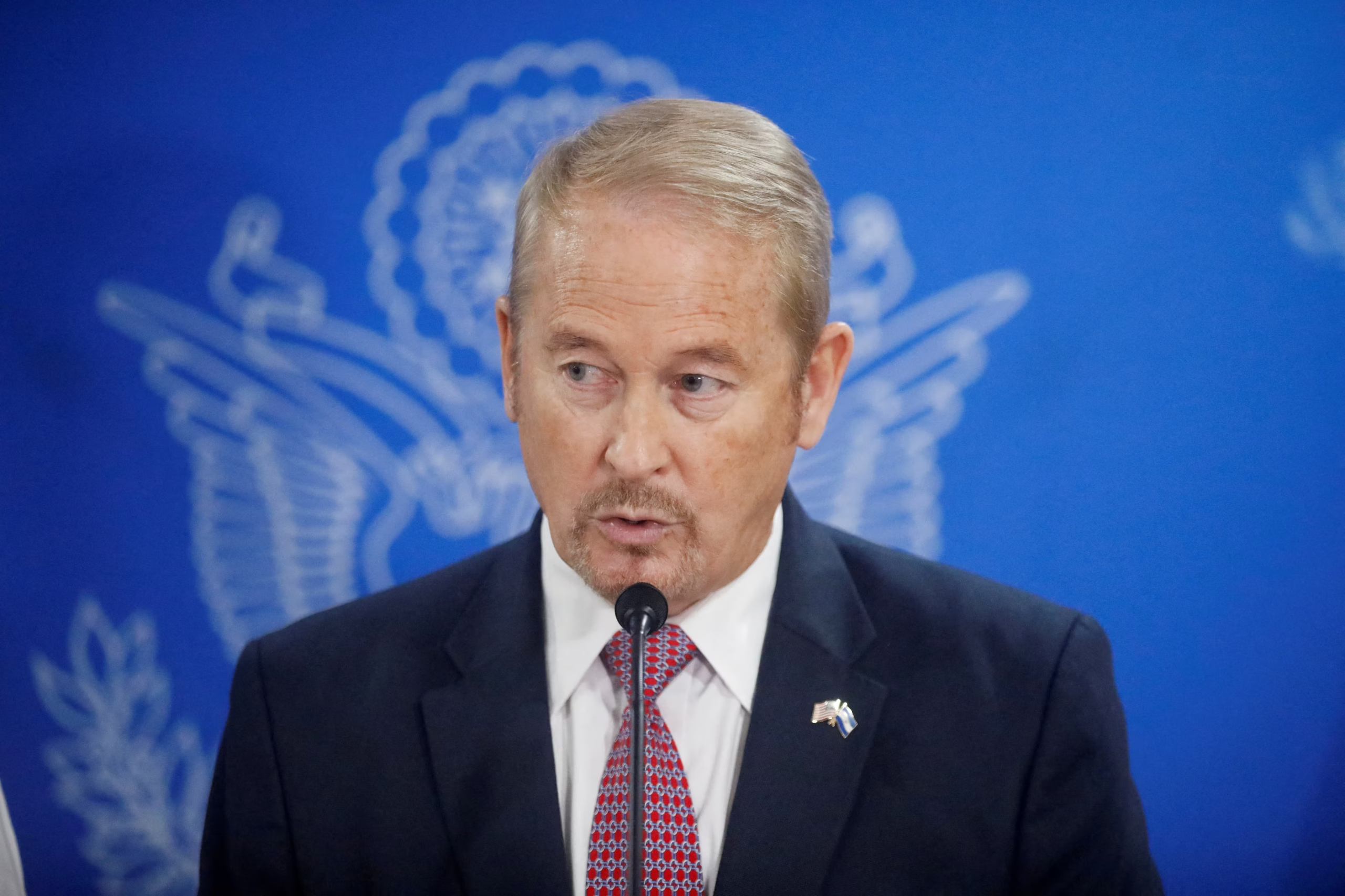Ronald Johnson, the new U.S. ambassador to Mexico appointed by President Donald Trump, is being viewed with skepticism by analysts due to his military background and close relationship with Salvadoran president Nayib Bukele. Though his presence may be challenging, experts believe it won’t be unmanageable for Mexico’s incoming president, Claudia Sheinbaum.
Johnson has a reputation as a hardliner in U.S. foreign policy. A former CIA officer and Green Beret, he previously served as ambassador in El Salvador under Bukele’s increasingly autocratic administration. His arrival suggests a shift away from conventional diplomacy and toward a blunt, security-first approach, with little emphasis on economic cooperation, according to several observers.
A hard-edged diplomat
“Johnson clearly arrives with an agenda focused on drug enforcement and migration control,” said Gema Kloppe Santamaría, a research fellow at George Washington University in Washington, D.C.
A tough security policy may offer relief to communities plagued by violence, but could also deepen instability. If cartels lose access to U.S. markets for narcotics, they may pivot to crimes like extortion or kidnapping inside Mexico, the expert warned.
Geopolitical analyst Stephanie Henaro, who sits on the board of the Mexican Council on Foreign Relations, noted Johnson’s symbolic first act: a visit with his wife to the Basilica of Guadalupe. “It signals how important religion is to his diplomatic style,” she explained. The visit served as both a nod to Mexico’s Catholic majority and a subtle provocation to a left-wing government that upholds secularism and has had a strained relationship with the Church. “It might turn out to be a smart move,” Henaro added.
Concerns about far-right ties
Both analysts expressed unease over Johnson’s apparent closeness with far-right figures. On his second day in Mexico, he dined with Eduardo Verástegui, a conservative Mexican actor and failed presidential hopeful closely linked to Trump’s Make America Great Again movement.
Verástegui represents ultra-Catholic, far-right ideology—diametrically opposed to the political legacy of Sheinbaum, a former student activist and granddaughter of communists. Henaro expects a strained relationship between the ambassador and the president, with Verástegui possibly playing a key informal role through his personal ties to Johnson.
Kloppe Santamaría, however, downplayed the potential for major conflict. “I don’t foresee a clash of titans,” she said, arguing that Sheinbaum’s crime-fighting goals aren’t fundamentally at odds with those of the Trump administration. She described Sheinbaum as pragmatic, noting that Mexico has essentially acted as a U.S. border enforcer—militarizing security and prioritizing American migration concerns.
Toward a ‘Bukelization’ of Mexico?
Henaro pointed to Johnson’s role in El Salvador, where he strongly backed Bukele’s aggressive anti-crime agenda, including the imposition of a sweeping state of emergency. That strategy led to over 83,000 arrests, suppression of civil liberties, constitutional violations, and full control over the legislative and judicial branches—amid reports of secret deals with gang leaders.
“I can envision a kind of ‘Bukelization’ of Mexico heading into the 2030 elections,” said Henaro. She suggested that if the ruling party nominates Omar García Harfuch—currently in charge of public security—the Salvadoran model could be adapted and even work in their favor.
Hope through the USMCA
These developments worry those hoping that the U.S. might support Mexico’s democratic institutions. “I don’t see Johnson championing democratic reforms or backing the opposition,” Kloppe Santamaría said.
His tenure in El Salvador, from 2019 to 2021, coincided with Bukele’s consolidation of power. “Given his track record and proximity to Bukele, there’s little reason to believe he’ll prioritize democratic governance or the rule of law,” she warned.
Still, Henaro argued that placing hopes on U.S. intervention to “save Mexico” is unrealistic and possibly dangerous. However, she noted that U.S. officials are deeply concerned by Mexico’s recent move to elect all federal judges by popular vote—an unprecedented global step that experts see as a potential gateway for organized crime to influence the judiciary.
That concern, Henaro suggested, could shape upcoming renegotiations of the United States-Mexico-Canada Agreement (USMCA), where Washington might demand stronger legal safeguards.
Henaro also sees Johnson’s appointment as a chance for Mexico to adopt a more assertive diplomatic stance amid global realignment. “If we don’t seize the moment, we’ll end up just following orders from others,” she cautioned.
Thus begins a new era in U.S.-Mexico relations, as Latin America’s largest economy and Washington’s top trading partner navigates its role in a shifting international order.







